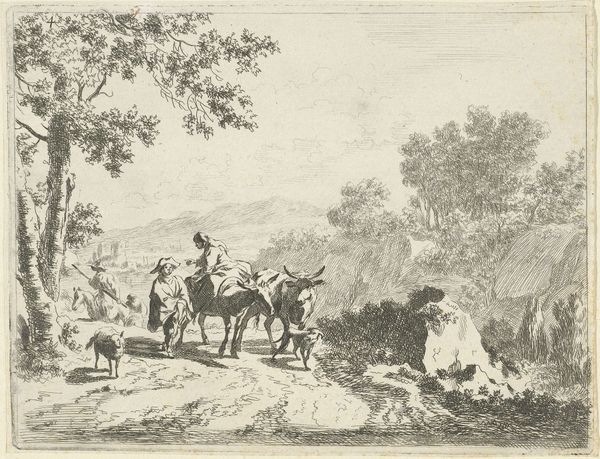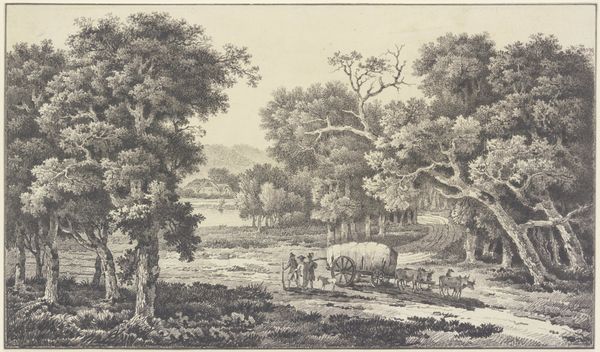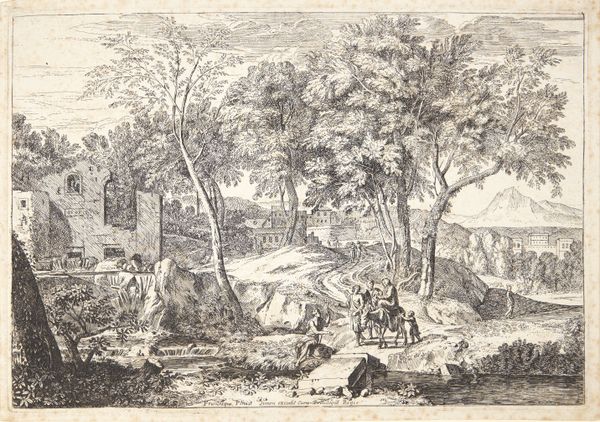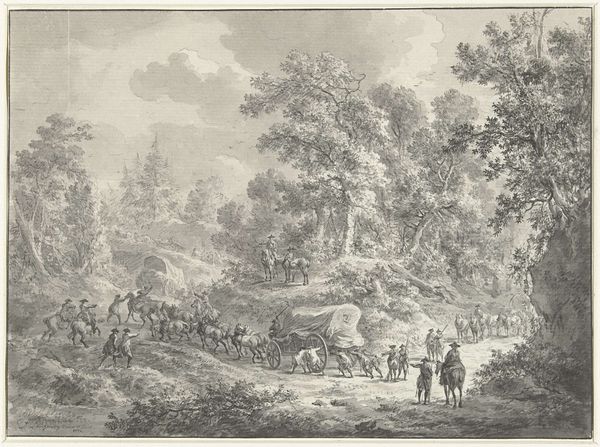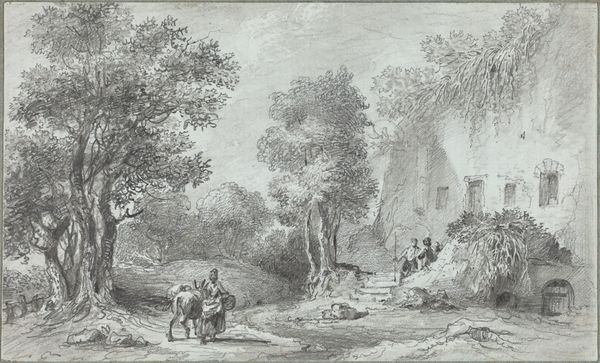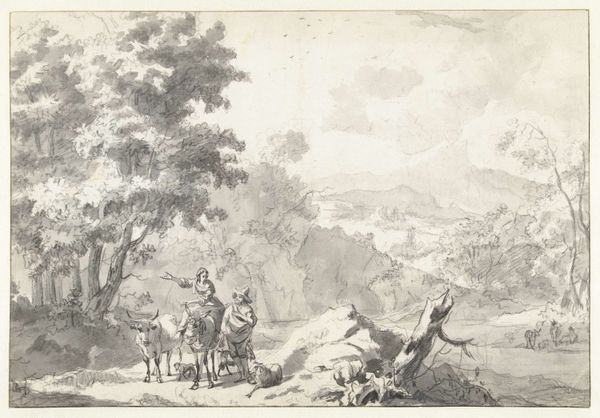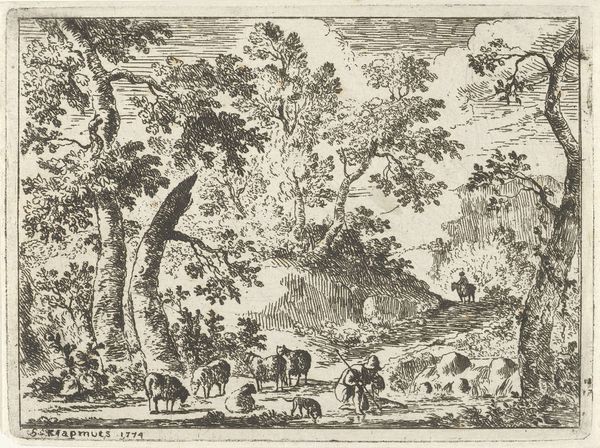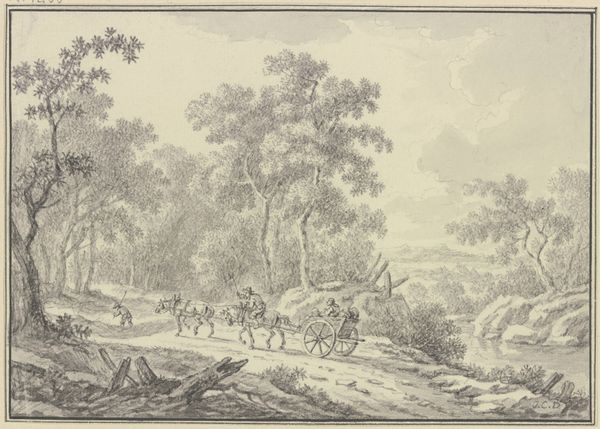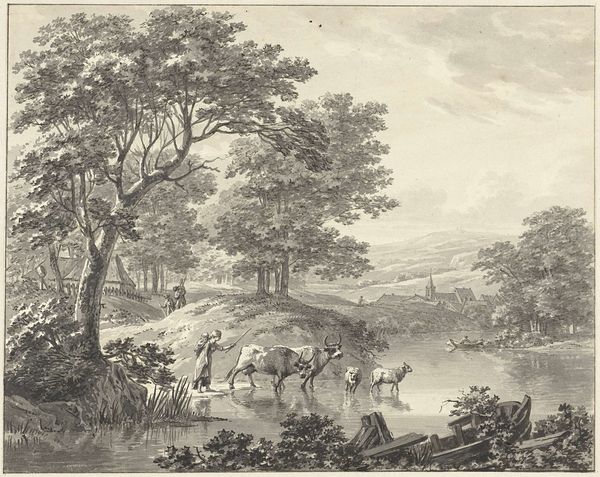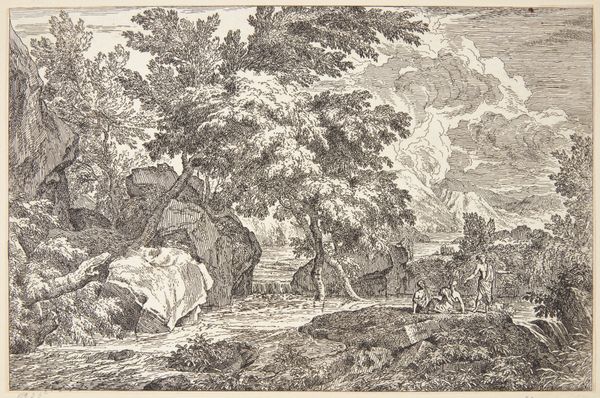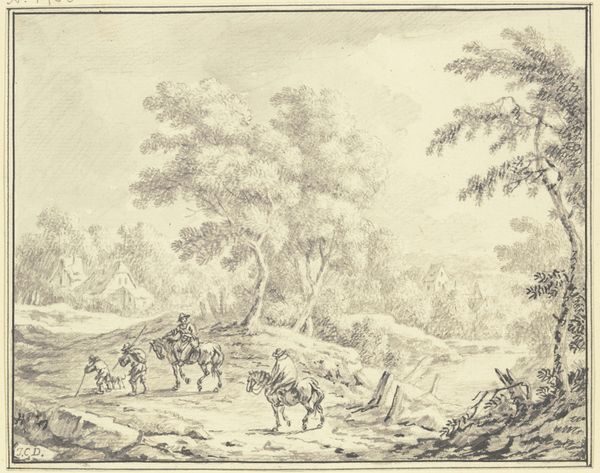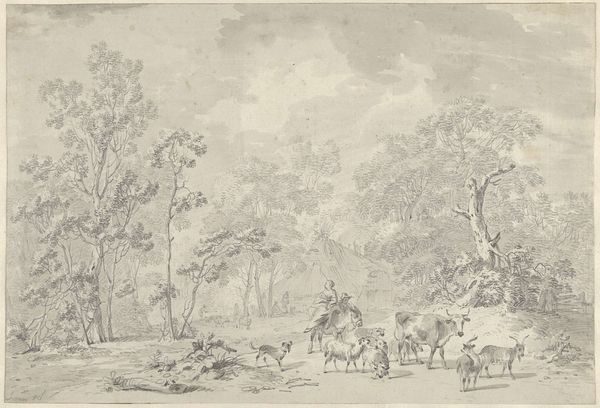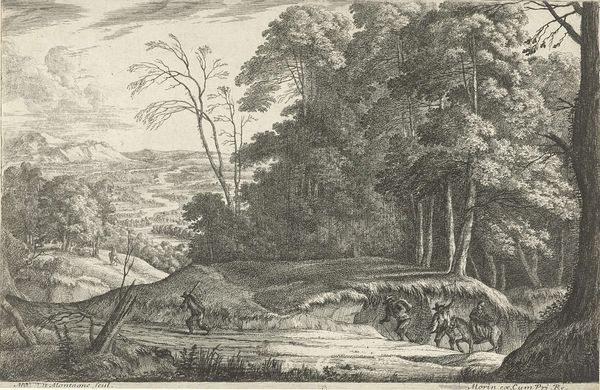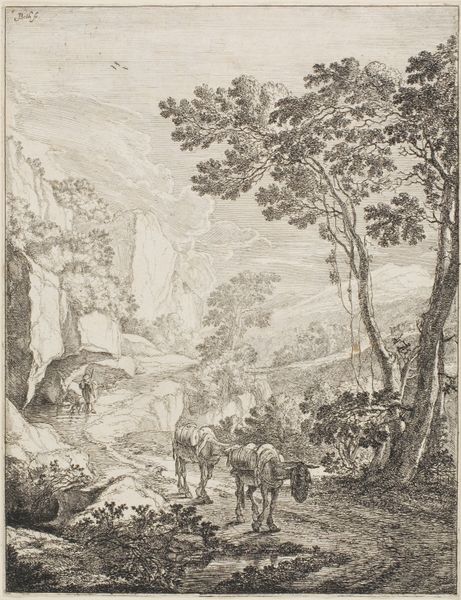
print, etching, ink
#
baroque
#
pen drawing
# print
#
etching
#
landscape
#
etching
#
figuration
#
ink
#
ink drawing experimentation
#
genre-painting
#
realism
Dimensions: height 147 mm, width 195 mm
Copyright: Rijks Museum: Open Domain
Editor: So, this is Johannes Gronsveld’s "Mountainous Landscape with Herders and Cattle", an etching and print from sometime between 1679 and 1728. It's a busy scene, but the subdued ink tones give it a peaceful, almost dreamlike quality. What stands out to you about this work? Curator: It's fascinating how these pastoral scenes became increasingly popular, often idealized visions. We see the romanticization of rural life that served the desires of an urban, increasingly wealthy art market. How much of this ‘reality’ do you think is true to the life of 17th and 18th century herders? Editor: Probably not very much! It's certainly not showing any hardship. It all looks very picturesque. It looks like it would appeal to a noble person. Curator: Exactly! There's an inherent power dynamic. The nobility, the bourgeoisie, consuming images that reaffirm their notions of order and picturesque beauty. These landscapes, through their idyllic representation, almost erase the real labor involved, don't you think? Editor: Definitely! It's like visual propaganda for the status quo. Is that a common purpose for art back then? Curator: It was a powerful function of art. Landscape became less about geographic accuracy and more about creating idealized worlds, demonstrating ownership, reinforcing social hierarchies and political allegiances through visual culture. This controlled representation of the common countryside promoted those social themes. Editor: I never considered it that way before, as a way to maintain control through imagery. Thanks! Curator: Precisely, it changes how we see not just the art, but also its role in a wider system.
Comments
No comments
Be the first to comment and join the conversation on the ultimate creative platform.
